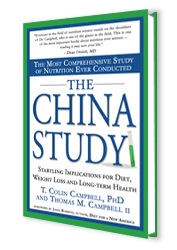July 30, 2009
There seems to be a lot of confusion and conflicting information regarding the body’s requirements for protein and which sources of animal protein vs. plant protein are healthier.
Many diets, dietitians and doctors disagree and are confused regarding the body’s requirements and best sources for protein. First it is necessary to address the body’s protein requirements and then the various sources such as animal protein vs. plant protein to help you determine which ones are optimal for you.
Body’s Protein Requirements
The body requires protein to build healthy cells for our blood, bones, hair, muscle, nails, organs and tissues. Proteins consist of various amino acids. When the body is supplied the necessary ingredients (amino acids) it easily manufactures the proteins it needs. The body utilizes the amino acids (complete and incomplete) as the basic building blocks. They can come from different sources as long as all the necessary components are supplied to meet the body’s ability to produce proteins
 Most experts really do not know for sure how much protein an individual needs or what the best sources are. The problem in the US and many other countries is that scientists try to promote a one size fits all approach based on average grams of protein consumed by the general population. Instead of monitoring the healthiest people on the planet to see what they consume, they survey the general population on the Standard American Diet (SAD) and make biased and unscientific recommendations. This flawed foundation creates many of the health problems and environmental issues we are experiencing today.
Most experts really do not know for sure how much protein an individual needs or what the best sources are. The problem in the US and many other countries is that scientists try to promote a one size fits all approach based on average grams of protein consumed by the general population. Instead of monitoring the healthiest people on the planet to see what they consume, they survey the general population on the Standard American Diet (SAD) and make biased and unscientific recommendations. This flawed foundation creates many of the health problems and environmental issues we are experiencing today.
We all need protein for health, yet depending on your age, activity level, available sources and geographic location our needs are as unique as we are. Common sense would indicate we need the most protein when we are an infant and developing and growing rapidly. The best food for an infant is obviously mother’s milk and it contains approximately 2% protein. After weaning there are many common sources available for protein and yet some are promoted more that others.
Most common promoted sources of protein include:
- beef
- chicken
- fish
- goat
- lamb
- pork
- turkey
- sea foods
- egg
- soy
- dairy (butter, cheese, milk, yogurt and whey powder)
- plants
- algae
- nuts and seeds
The China Study Animal Protein Link
 Research conducted by the United States Department of Agriculture (USDA) and summarized in the book “The China Study” by T Colin Campbell indicates most animal protein based foods are responsible for many diseases and health issues. This is a hotly debated topic and there are many complex factors to consider.
Research conducted by the United States Department of Agriculture (USDA) and summarized in the book “The China Study” by T Colin Campbell indicates most animal protein based foods are responsible for many diseases and health issues. This is a hotly debated topic and there are many complex factors to consider.
One must consider all aspects of animal products from production to consumption: additives, antibiotics, bacteria, chemicals, cooking, disease, feed, heating, living conditions & environment, heavy metals, irradiating, micro waving, packaging, pasteurizing, preservatives, processing, refining, slaughter, transportation, treatment, toxins, vaccinations.
Many of the same factors apply to your choices about plant based foods as well. Recommending a plant based food without looking at all the conditions is almost as risky as an animal based one.
Animal Protein Health Risks
My research and personal experience indicates that: Most animal products have many risks based on the way the animal is treated from birth to death.
Due to the many unhealthy factors associated with most animal products you may be better served to limit your consumption or avoid them. We are the only animal on the planet that cooks the animals we consume and become sick and weak as a result. Many cultures do consume raw animal based protein and tend to be healthy.
Since we know we are what we eat it is important to eat the very best foods available. Consider a chimpanzee that weighs less than a man and yet is several times stronger on a plant based lifestyle.
Milk, Dairy, & Eggs
 Cows’ milk is used to make cheese and whey. The dairy cows have many health issues resulting from unhealthy living conditions including: abuse, antibiotics, anxiety, corn feed, infections, hormones, mistreatment, processing and stress. Cows are meant to eat grass not animal parts, corn and grains which make them fat and sick. Also casein in milk is a an allergen for most humans.
Cows’ milk is used to make cheese and whey. The dairy cows have many health issues resulting from unhealthy living conditions including: abuse, antibiotics, anxiety, corn feed, infections, hormones, mistreatment, processing and stress. Cows are meant to eat grass not animal parts, corn and grains which make them fat and sick. Also casein in milk is a an allergen for most humans.
Egg protein has many of the same issues and a lot depends on how the chickens are raised. Fresh eggs from free range chickens may be an acceptable choice for some.
Some pristine animal products may be acceptable if you can find sources that are sustainable, wild/ free range, fed natural foods and raised without the use of synthetic antibiotics, chemicals or hormones. These are difficult to find today due to the commercial factory treatment of animals. Most animal products are highly processed, refined and treated. Then they are heated at high temperatures so the enzymes are destroyed and as dead foods they contain minimal megahertz of energy. Raw goat milk and cheese may be acceptable choices for some.
Balancing Your Protein Concerns
Soy foods are raising many health concerns contrary to the hype about being a health food. The phyto-estrogens and improper processing are two of the main concerns. Soy may be acceptable when it is an organic green legume, properly fermented or sprouted in order to be safe for consumption. Most of the soy products are genetically modified and not prepared properly for your health.
Peanuts tend to have an abundance of myco-toxins due to the farming methods used. Also processing and heating the peanuts or peanut oil will cause it to deteriorate into an unhealthy food source.
 My research shows the ideal proteins come from raw plant based whole food sources such as: algae, beans, berries, fruits, grains (sprouted), grasses, green leafy plants, nuts, sea weeds, seeds, sprouts and vegetables, Some excellent plant based protein powder is pea protein or rice protein powder supplements. There are many amateur and processional athletes that are vegetarian and extremely fit and healthy. Carl Lewis is vegetarian and won five gold medals in track and field. A great book on this topic is “Diet for a New America” by John Robbins.
My research shows the ideal proteins come from raw plant based whole food sources such as: algae, beans, berries, fruits, grains (sprouted), grasses, green leafy plants, nuts, sea weeds, seeds, sprouts and vegetables, Some excellent plant based protein powder is pea protein or rice protein powder supplements. There are many amateur and processional athletes that are vegetarian and extremely fit and healthy. Carl Lewis is vegetarian and won five gold medals in track and field. A great book on this topic is “Diet for a New America” by John Robbins.
Best Sources for Plant Based Protein
Some great sources of plant based protein includes:
- raw bean sprouts
- broccoli
- barley grass
- wheat grass
- green leafy plants
- green herbs
- legumes
- pea protein
- rice protein
- chia seeds
- quiona
- amaranth
- edamame
- spirulina
- chlorella sea weeds and sprouts
Eating Raw Organic Whole Foods
 Raw organic whole foods have an abundance of enzymes, vitamins, minerals, trace elements, phyto-nutrients and megahertz of energy for great energy and health.
Raw organic whole foods have an abundance of enzymes, vitamins, minerals, trace elements, phyto-nutrients and megahertz of energy for great energy and health.
Remember that all animals on earth depend on plants as the primary source of food. Plants are the most efficient at converting the suns energy into usable food products. By eating lower on the food chain we will reduce our consumption of unhealthy animal products which will reduce the excessive destruction and pollution of our planet.
We will also be able to reduce the global hunger crisis as we redirect foods to hungry people instead of feeding the foods to animals which wastes from 60% to 90% of the food calories and wastes a significant amount of fossil fuels. For all these reasons and many more it is important for your health and happiness to discover the important differences between animal proteins vs. plant proteins and choose to consume more plant based foods.
Our next blog post will share: Simple Sleep Strategies

Leave a Reply